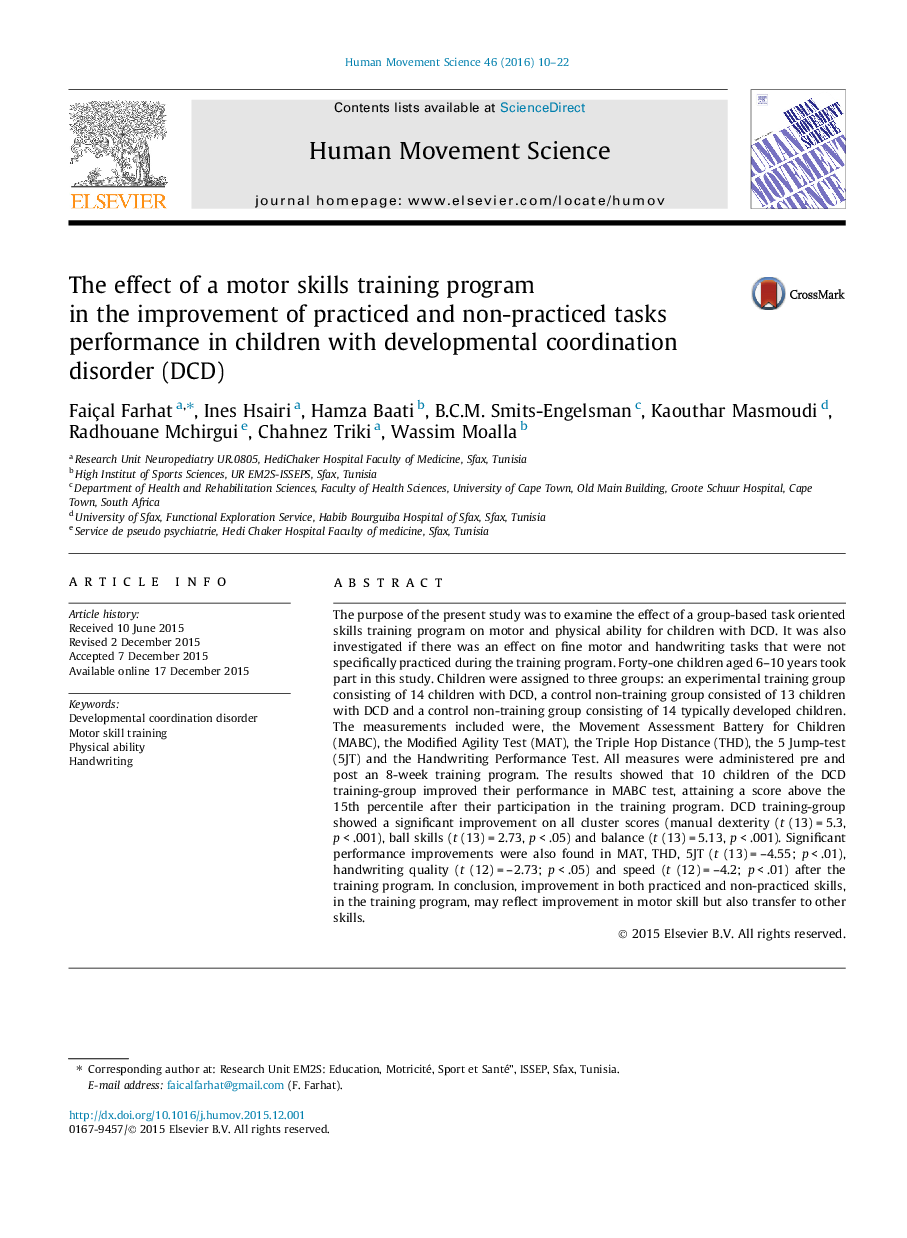| Article ID | Journal | Published Year | Pages | File Type |
|---|---|---|---|---|
| 928201 | Human Movement Science | 2016 | 13 Pages |
•Task specific training lead to improvements in the tasks practiced.•Children with DCD improved after an 8-week group-based training on gross motor coordination and physical ability.•The DCD group also improved on non-trained tasks including fine motor and handwriting.•Children with DCD enjoyed participating in the training program over the entire period of the intervention.
The purpose of the present study was to examine the effect of a group-based task oriented skills training program on motor and physical ability for children with DCD. It was also investigated if there was an effect on fine motor and handwriting tasks that were not specifically practiced during the training program. Forty-one children aged 6–10 years took part in this study. Children were assigned to three groups: an experimental training group consisting of 14 children with DCD, a control non-training group consisted of 13 children with DCD and a control non-training group consisting of 14 typically developed children. The measurements included were, the Movement Assessment Battery for Children (MABC), the Modified Agility Test (MAT), the Triple Hop Distance (THD), the 5 Jump-test (5JT) and the Handwriting Performance Test. All measures were administered pre and post an 8-week training program. The results showed that 10 children of the DCD training-group improved their performance in MABC test, attaining a score above the 15th percentile after their participation in the training program. DCD training-group showed a significant improvement on all cluster scores (manual dexterity (t (13) = 5.3, p < .001), ball skills (t (13) = 2.73, p < .05) and balance (t (13) = 5.13, p < .001). Significant performance improvements were also found in MAT, THD, 5JT (t (13) = –4.55; p < .01), handwriting quality (t (12) = –2.73; p < .05) and speed (t (12) = –4.2; p < .01) after the training program. In conclusion, improvement in both practiced and non-practiced skills, in the training program, may reflect improvement in motor skill but also transfer to other skills.
Graphical abstractFigure optionsDownload full-size imageDownload as PowerPoint slide
